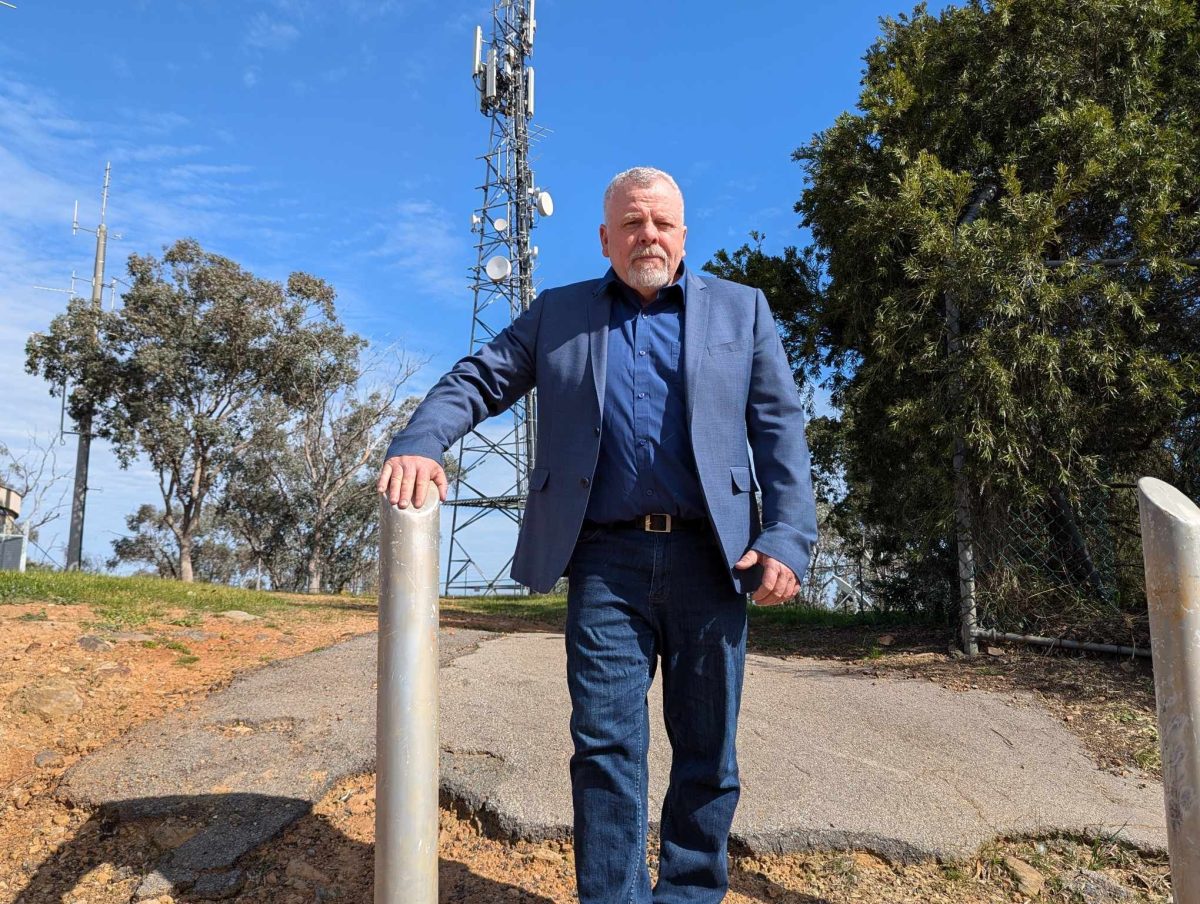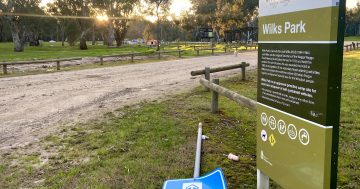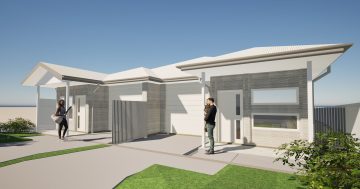
Richard Foley believes urgent action is needed to address the town’s housing crisis. Photo: Jarryd Rowley.
Wagga councillor Richard Foley will move a motion that council investigate and pursue a pilot program to build 12 transitional housing units to address the growing homelessness in the city, at the next local government meeting on Monday (13 October).
“We’re often berated on social media for not doing something about this issue, even though it’s not part of council remit,” Cr Foley said.
“We have a moral and ethical duty to do something. It’s getting so bad here that people are calling emergency services just so they can get a bed for the night.”
Under Cr Foley’s proposal, council will have a report prepared on the feasibility of using items such as Opods, shipping containers and prefabricated cabins to build low cost housing on either council or state government land.
“Transitional housing units under this model are intended as compact one-bedroom dwellings,” Mr Foley’s written notice of motion stated.
“While not large, each unit can be designed to include a small bathroom and kitchenette, ensuring that residents have dignity, privacy, and basic self-sufficiency during their short stay.
“These units are not intended for long-term accommodation but as a safe stepping stone. It is intended that residents would also have access to wraparound services to help them stabilise and transition into more permanent housing and greater independence.”
Cr Foley said council would initiate the process but the intention would be for the NSW Government or non-government organisations to fund and manage the development.
“There’s a lot of buck-passing on this area, so we need take a stand to initiate a pilot scheme. The funding is there; we’re all paying taxes, levies and fees; someone with a creative mind could make this happen,” he said.
“Ultimately, such an investment would save the taxpayers far more than it would cost to establish, by reducing reliance on policing, courts, jails, and hospitals as default responses to homelessness.”
According to property website Domain, there is only one dwelling available to rent in the entire town that costs less than $350 a week – a small unit on Tarcutta Street. This means housing is unaffordable to those on welfare payments, which may be as low as $300. Some 99 per cent of all private rentals are already occupied, meaning there are very few vacancies.
“Homelessness is a visible and growing challenge in Wagga Wagga. Increasing numbers of residents are resorting to unsafe or costly measures such as repeated emergency service callouts, hospital presentations, or minor offending in order to secure shelter. This cycle imposes a significant and unnecessary burden on police, ambulance, emergency departments, and the courts, while failing to provide dignity or pathways to recovery for those affected,” Mr Foley said.
















